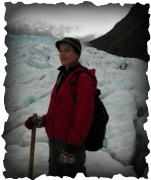|
If you have never seen a TED talk, you're missing out. TED.com showcases trendy, intellectual presentations presented in an interested way. I just watched this one called Changing Education Paradigms, which questions the rise of ADHD combined with technology that updates literally every second (Facebook, Twitter, hundreds of TV channels). Why are children grouped at school predominantly by age? Kids learn in so many different ways (in groups vs individually, visual vs auditory learners) that it seems odd to classify them just by what year they were born.
I was lucky in that my personality fit relatively well into how traditional school is organized. However, I know a lot of people who are brilliant, but either don't apply themselves to what they're learning because they feel it's not relevant, or just don't learn in the way that public education is set up. The talk by Ken Robinson brings up a good point that instead of letting students work on what is really important to them, all the students in the class are brought to be "average". This gives me a few things to think about when I teach my own science class. I generally incorporate discussions, activities, and observational labs in my class. 30% of the course is based on their activism project, where the students must design and implement a community/environmental service project of their choosing. But still, another 30% is based on exams, which I know is a more traditional way of testing knowledge. I try to only test students on the most relevant course material - they don't have to memorize the nitrogen cycle, but they should know what causes climate change. This sort of goes back to the overarching theme of my life - learning how to actually do things. Tomorrow I'm going to attempt to plant my garden. It's supposed to rain all weekend, but I have the design of how I'm going to set it up, and I am very determined to do it. I have lots of compost/cardboard/grass clippings/food scraps to try my no-till setup. Conventionally, people till the soil before planting the seeds. Since I'm taking a permaculture class, one idea is to lay grass clippings/vegetable scraps, cardboard, then compost, then seedling soil on the ground before planting your seeds on top of this. Not only is this my first garden that I'll plant by myself, but it's also the first time anyone in my family is trying this no-till idea. However, since permaculture is based off the way things grow in nature, I feel fairly confident that by replicating nature, I should be somewhat (?) successful. I'll let you know how things go on Monday.
3 Comments
7/5/2012 07:35:56 pm
Nice description about the Revolutionizing Education i.e. the nice steps taken by you for Changing Education Paradigms. I think people should like it . I like this information too and also i am waiting for some new updates.
Reply
Thanks for your comment! It's sometimes difficult to figure out alternative teaching strategies that work, but hopefully I'm doing okay. About my garden- last year I tried it with the compost/cardboard/grass clippings method, and it turned out really well. So well that I did the same for this year!
Reply
Your comment will be posted after it is approved.
Leave a Reply. |
About ShonaI'm an eco-conscious girl from Montreal, Quebec. I'm currently an adjunct science professor at Champlain College of Vermont (Montreal Campus). I'm interested in any opportunities to expand my experience with grassroots activism, climate change legislation, or environmental education. Archives
March 2016
Categories
All
|

 RSS Feed
RSS Feed
